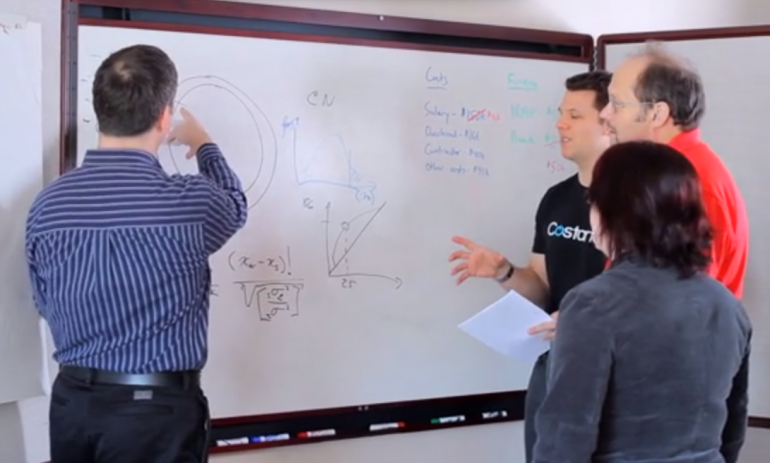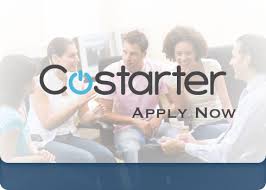Tucked up all the way in northern Ontario and sitting on top of Lake Suprerior is the small city of Thunder Bay, a 16-hour drive from Toronto and an 8.5 hour drive from Winnipeg. There shouldn’t be much there in the way of startup technology and mentorship, but as local entrepreneur Nick Kolobutin told us, the tech community is growing.
Thunder Bay has its obvious limitations- such as the remoteness and distance from any major tech hub- but it also has its strengths. Most recently one of these strengths was launched in the form of the Costarter accelerator program, the regions first and only startup accelerator that produced its first cohort earlier this year.
Costarter is a three-month program that invests $15,000 into startups of two to three people. It’s first cohort occurred between January 1 to March 31, taking place at the “Innovation Centre” at Confederation College.
Much like other startup accelerators, the organization’s website claims it will “invest in your team so that you can focus on growing your business. We will make introductions, connect you with the resources you need, and help you learn from our experience, but ultimately it will be your team’s job to deliver the product and the sales.”
Along with four other businesses, Kolobutin’s startup called ShipEarly took part in the accelerator. ShipEarly is cloud-based, lead generation and sales automation tools so manufacturers and retailers can work together to grow sales.
Kolobutin claims that Thunder Bay represents an “untapped” area in terms of startup potential. Not only is there an active angel investor presence dedicated to helping out the right startups in the area, but plentiful business grants from the government for businesses in Northern Ontario make it viable. On top of that, he believes that since the cost of living is lower than Toronto, Montreal, Ottawa or Winnipeg, it ends up leaving the entrepreneur with more time and money, “and we offer both.”
 “Because there really aren’t other companies to cloud yourself amongst, you have the ability to really stand out in this region,” Kolobutin told BetaKit. “There’s definitely people like angel investors that want to see companies start here and succeed and if you’re one of the them you’re more likely to get the ear of people in the community.”
“Because there really aren’t other companies to cloud yourself amongst, you have the ability to really stand out in this region,” Kolobutin told BetaKit. “There’s definitely people like angel investors that want to see companies start here and succeed and if you’re one of the them you’re more likely to get the ear of people in the community.”
Of course, he said, there’s also the obvious disadvantages. Shipping is expensive and Thunder Bay is a community of just 110,000, no where near Canada’s tech mega-community of Toronto. “It’s a great test market for people who want to start out with their products or services but ultimately to flourish you have to get out of town,” he said. “It requires people to tap into larger networks and overcome those distance challenges.”
Perhaps places like Thunder Bay could represent the minor league equivalent for the startup world, to borrow a sports metaphor. Launch a product and get a bit of buzz and traction locally, and then move on to Toronto, Montreal or Vancouver.
Moreover, he said since there’s never been a huge local tech success, there’s not many senior mentors who can help mentor startups. “Not to the point where it has gained enough mass like a Waterloo or Montreal,” said Kolobutin. “Like many communities up here, traditionally we’re a resource-based economy.”
Nevertheless, initiatives like the Costarter program and the Northern Ontario Angels, there’s reason for optimism. “In Halifax, you’re starting to see a little bit of a tech boom happening now that one company has sold to Salesforce, and I think there’s a couple other success stories. But we don’t have that inertia in place, and it requires a program like this accelerator to try and grow that tech community.”
Interestingly, Kolobutin said when startups in Thunder Bay want to branch out to a larger market, the first one that comes to mind isn’t Winnipeg or Toronto, but rather Minneapolis, a modest six-hour drive away. He said the the state of Minnesota’s largest city, with nearly 400,000 “which we probably have more similarities to.”
Here’s a quick snippit of the other four teams that completed the Costarter program:
Recroup, a platform to help recent grads find entry-level positions
Ungalli Clothing, a socially-conscious clothing brand
Go Kin Packs, a product that fits into a day pack and uses walking to generate electricity. It can charge electronics (cell phones, tablets, GPS devices, etc.) and batteries using a USB port.



